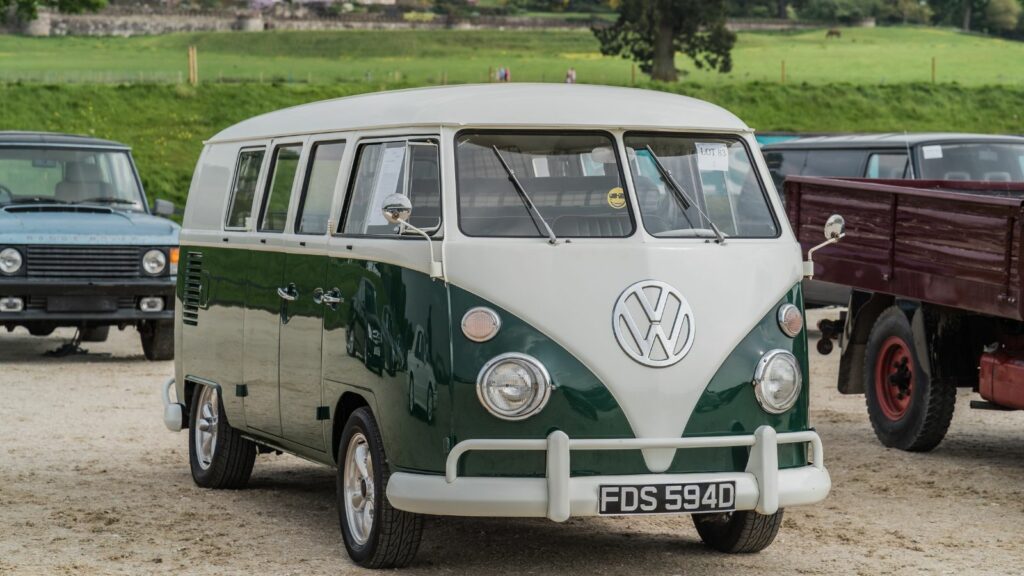Rear engine cars have always been fascinating. By moving the engine behind the driver, automakers created machines with unique handling, distinctive styling, and clever packaging. The layout has been used for everything from tiny city cars to exotic supercars. Although rare compared to front or mid engine setups, rear engine designs have produced some of the most iconic cars in history. Here are 20 rear engine cars that left a lasting impression, expanded with more detail on what made them so special.
Porsche 911
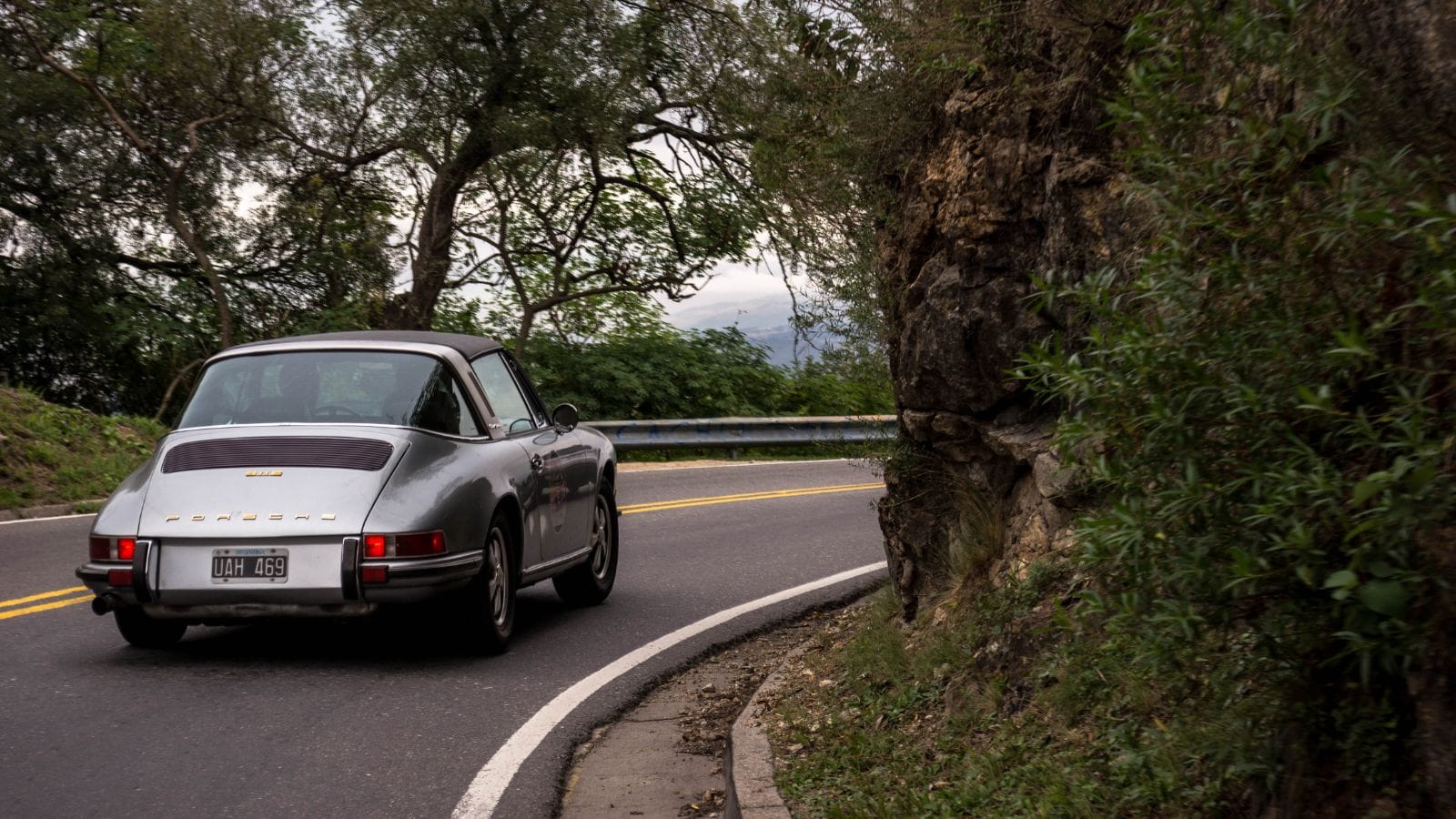
The Porsche 911 is the definitive rear engine sports car. Since 1964, its flat six engine at the back has shaped its identity. Critics called it tail happy, but drivers who mastered it found unmatched balance and performance. Over the decades, Porsche refined the 911 into a legend that remains the benchmark for sports cars worldwide.
Volkswagen Beetle
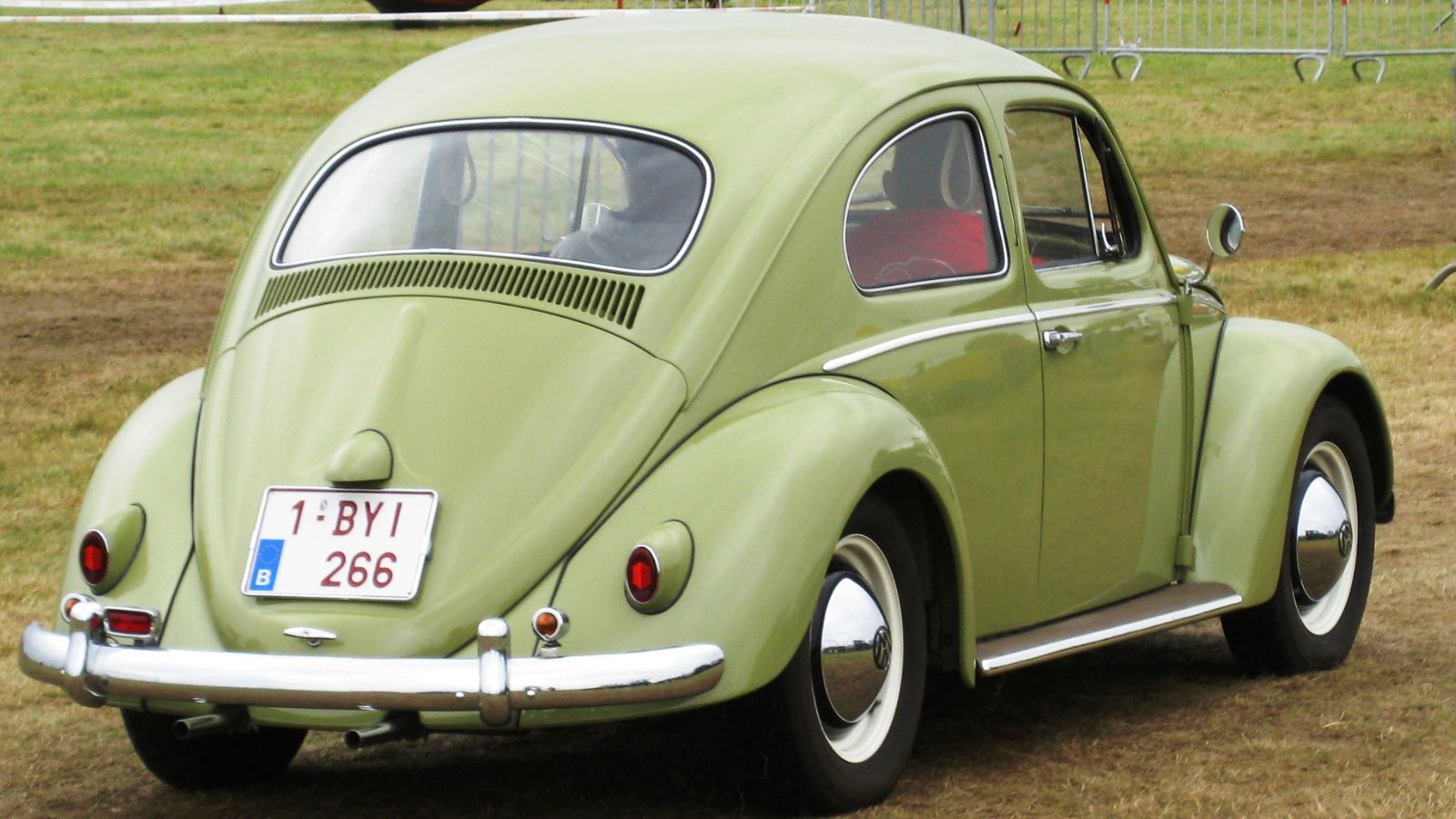
The VW Beetle is the most famous rear engine car ever built. Designed in the 1930s and produced for decades, it used a simple air cooled flat four engine in the back. Its affordability and durability made it a global hit, with over 21 million built. It was slow, but it was also dependable, and it became a cultural icon of the 1960s.
Chevrolet Corvair
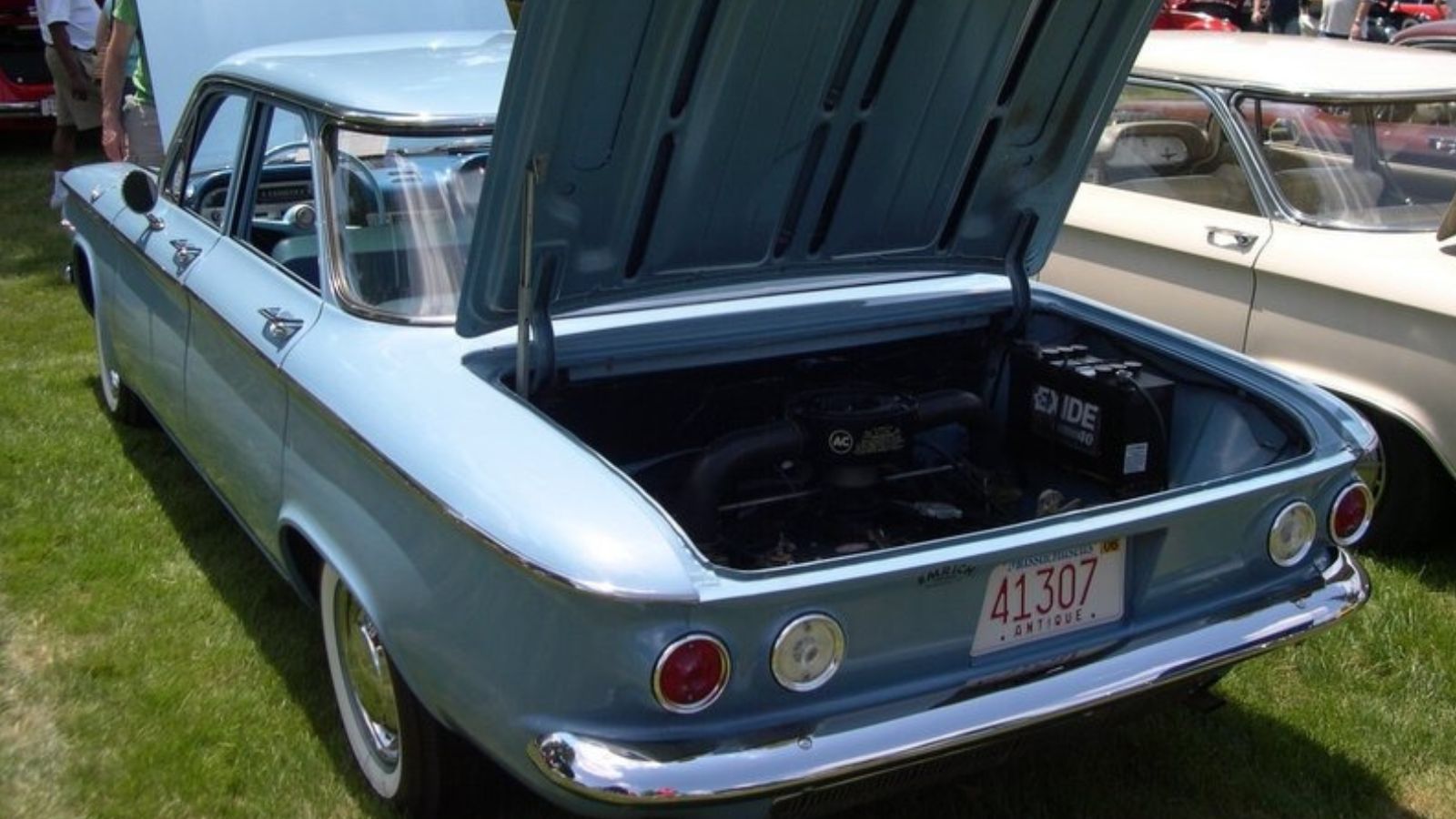
Chevrolet shocked America in 1960 with the Corvair, the only US mass market car with a rear engine. Its flat six and independent suspension made it unique, but it faced controversy after Ralph Nader’s book Unsafe at Any Speed. While its reputation suffered, today enthusiasts appreciate its quirky engineering. A clean Corvair is now seen as a cool alternative to muscle cars.
Fiat 500 (Classic)
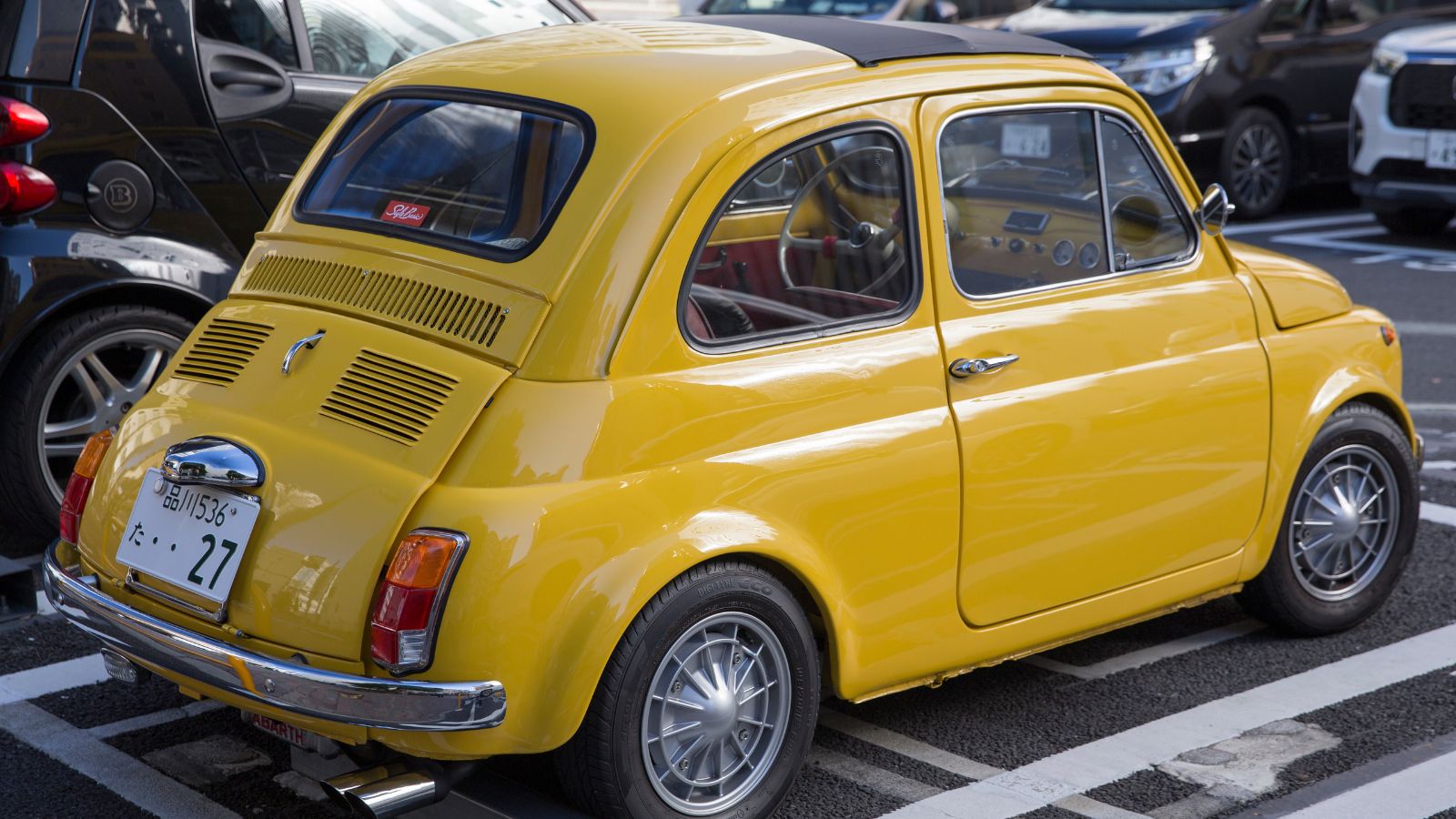
Italy’s Fiat 500 put millions on the road between 1957 and 1975. Its rear mounted two cylinder engine produced modest power, but its tiny size made it perfect for city driving. Cheap, cheerful, and easy to fix, it became one of the most beloved small cars ever built. Today, it is a collectible symbol of postwar Italian life.
Renault Dauphine
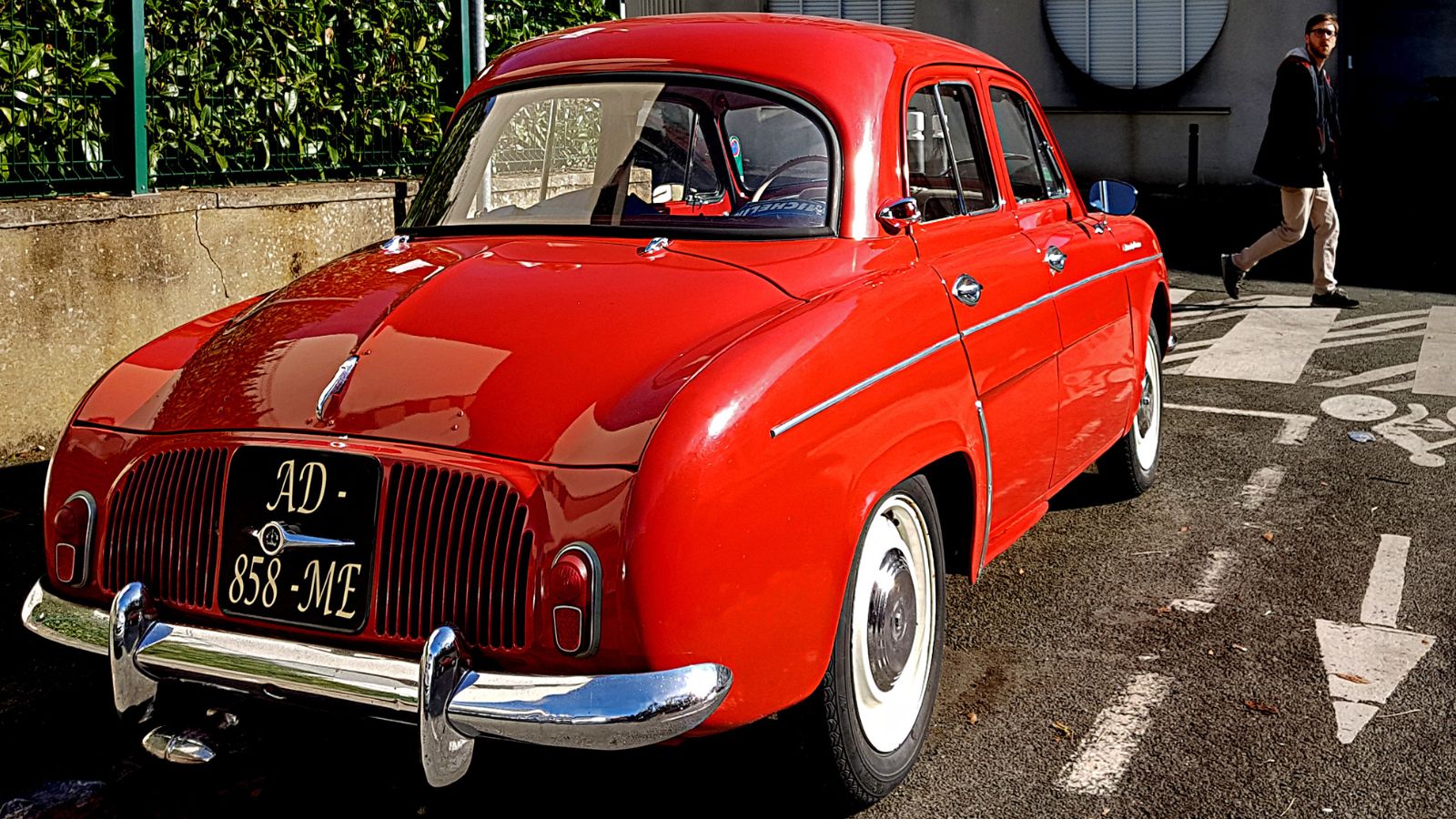
France’s Renault Dauphine was designed to rival the Beetle in the 1950s and 1960s. With its small four cylinder engine mounted at the rear, it was light, practical, and affordable. Over two million were sold, though rust and reliability issues hurt its reputation. It remains a charming example of French motoring history.
Tatra 603
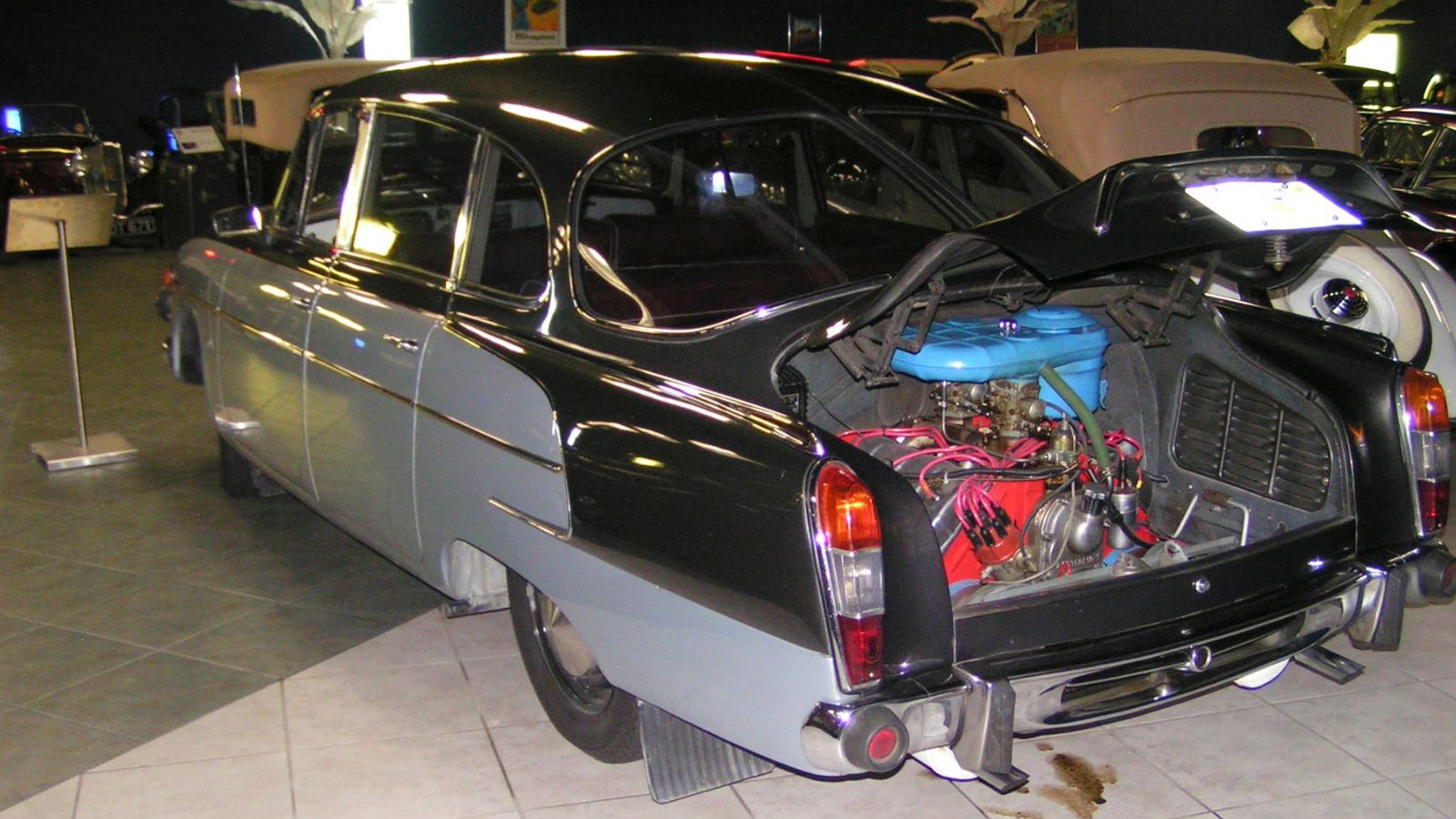
Czechoslovakia’s Tatra 603 was unlike anything else on the road. A rear mounted air cooled V8 powered this large sedan, which was used by government officials across Eastern Europe. With aerodynamic styling and advanced engineering, it was decades ahead of its time. Collectors prize it today for its rarity and bold design.
DeLorean DMC12
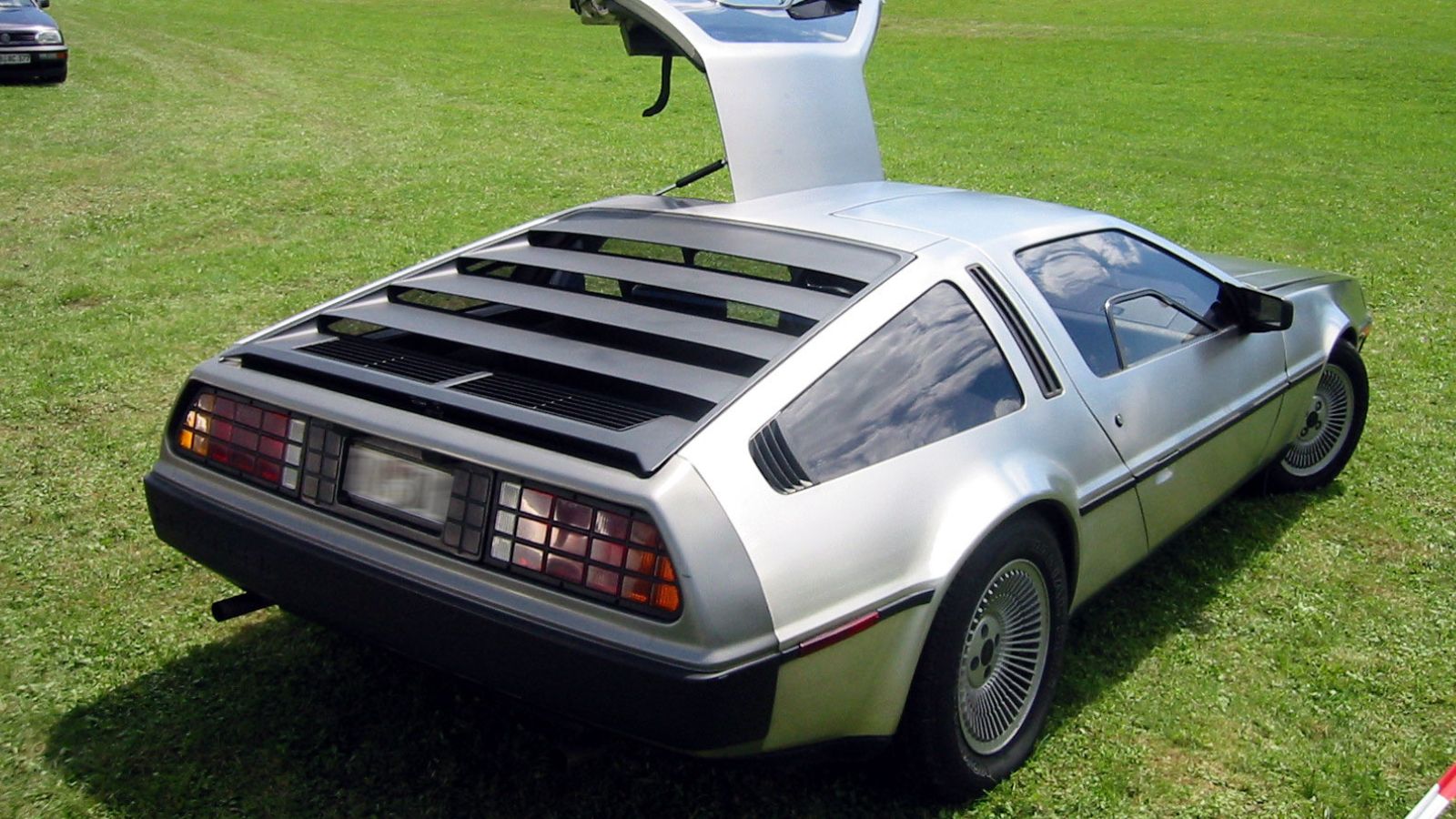
The DeLorean DMC12 is forever linked with Back to the Future. Its stainless steel body and gullwing doors made it futuristic, but under the skin it used a rear mounted V6. Performance was modest, yet its styling and pop culture fame have made it unforgettable. Today, collectors chase them for nostalgia as much as engineering.
Smart Fortwo
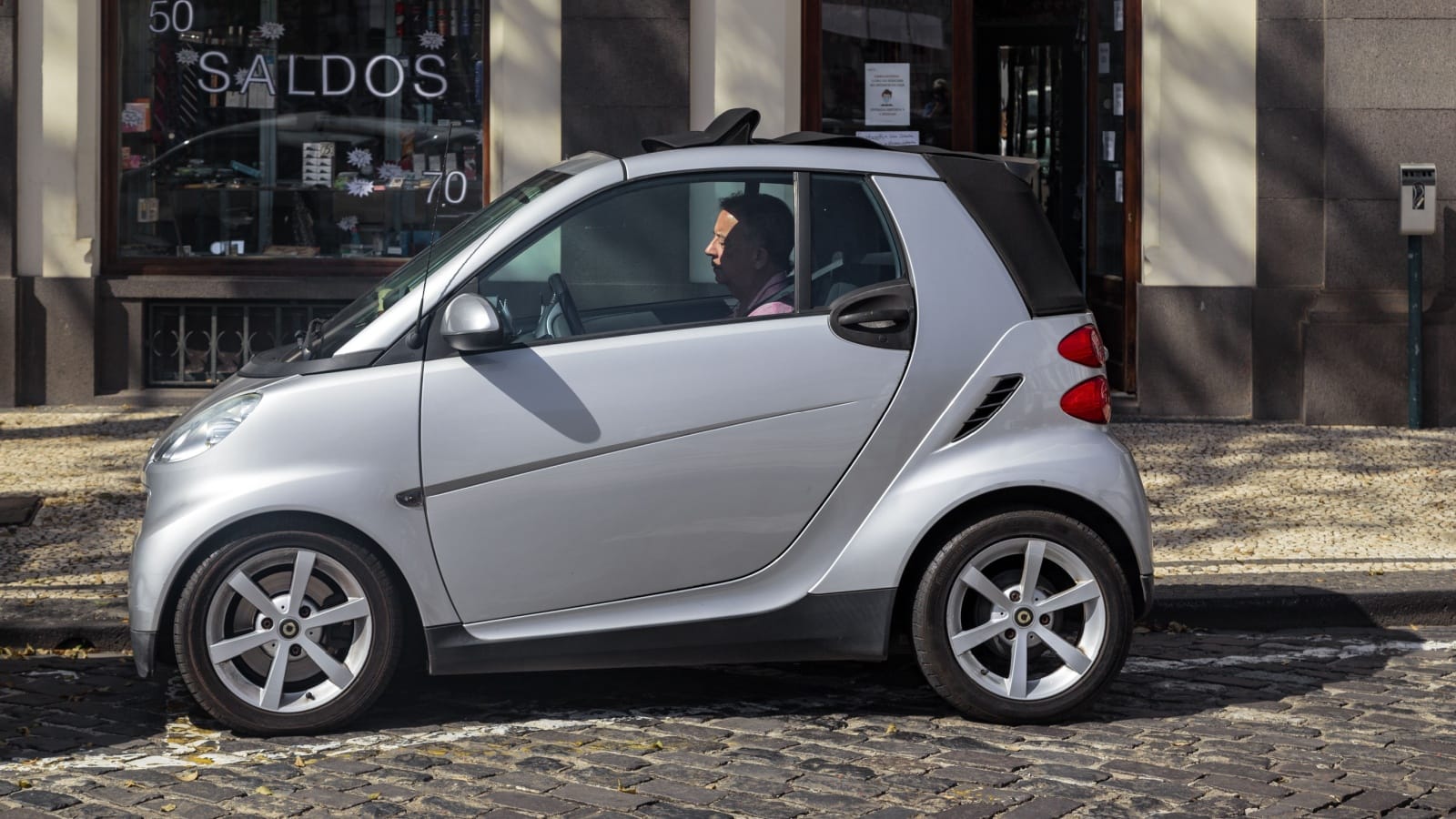
In modern times, the Smart Fortwo showed how efficient packaging could reshape city cars. Its tiny three cylinder rear engine allowed a surprisingly roomy interior in a car shorter than most hoods. Perfect for crowded streets and tight parking, the Fortwo became a symbol of practical urban driving.
Porsche 356
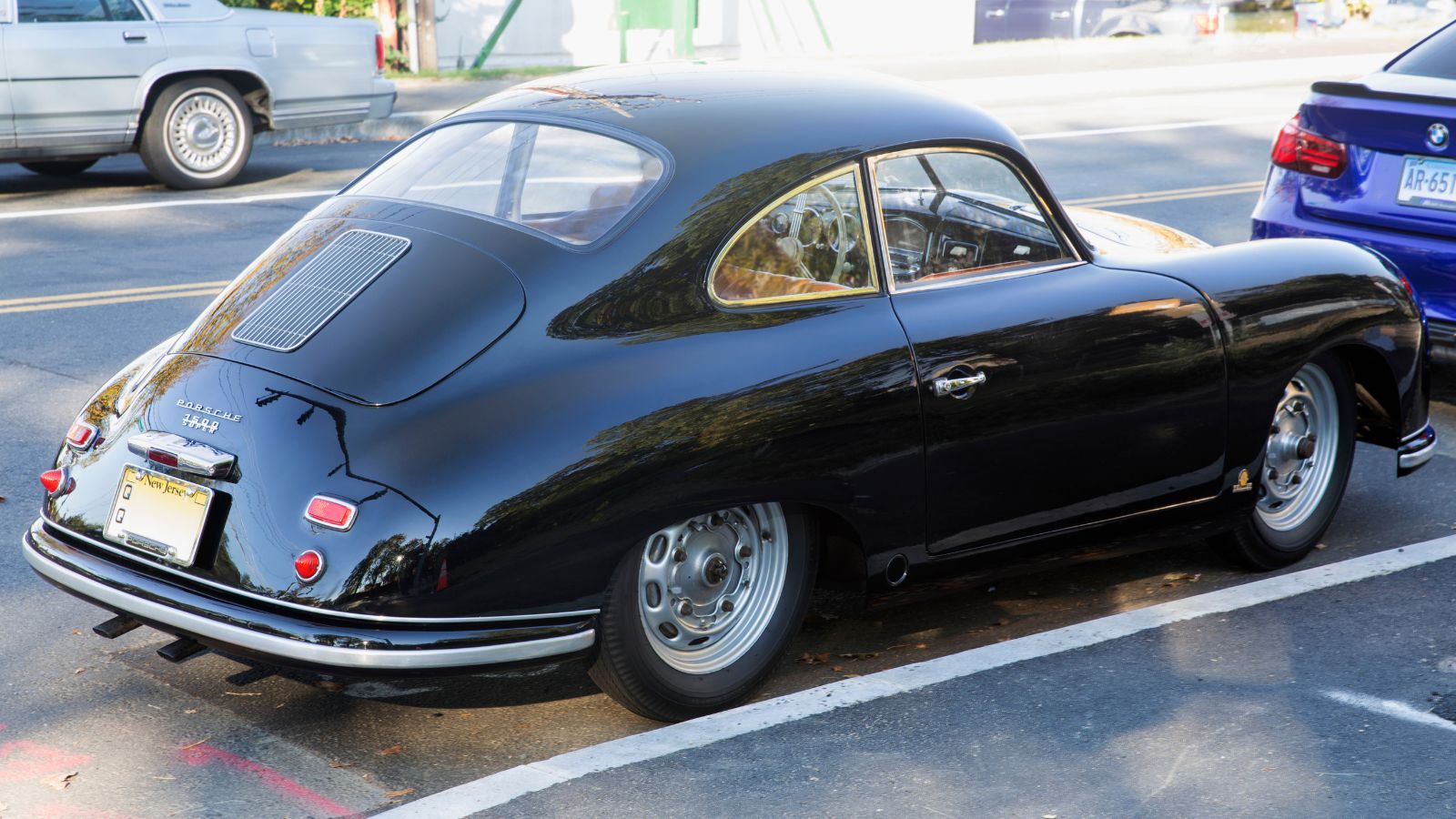
Porsche’s first production car, the 356, debuted in 1948. Lightweight, nimble, and powered by a rear mounted flat four, it laid the foundation for everything Porsche built later. Today, it is a highly collectible classic, loved for its elegant curves and pure driving feel.
BMW Isetta

The bubble car craze of the 1950s gave us the BMW Isetta. With a single cylinder rear engine and a front opening door, it looked more like a scooter with a roof than a car. Despite its odd shape, it became one of BMW’s most successful early cars, selling in the hundreds of thousands.
Renault R8
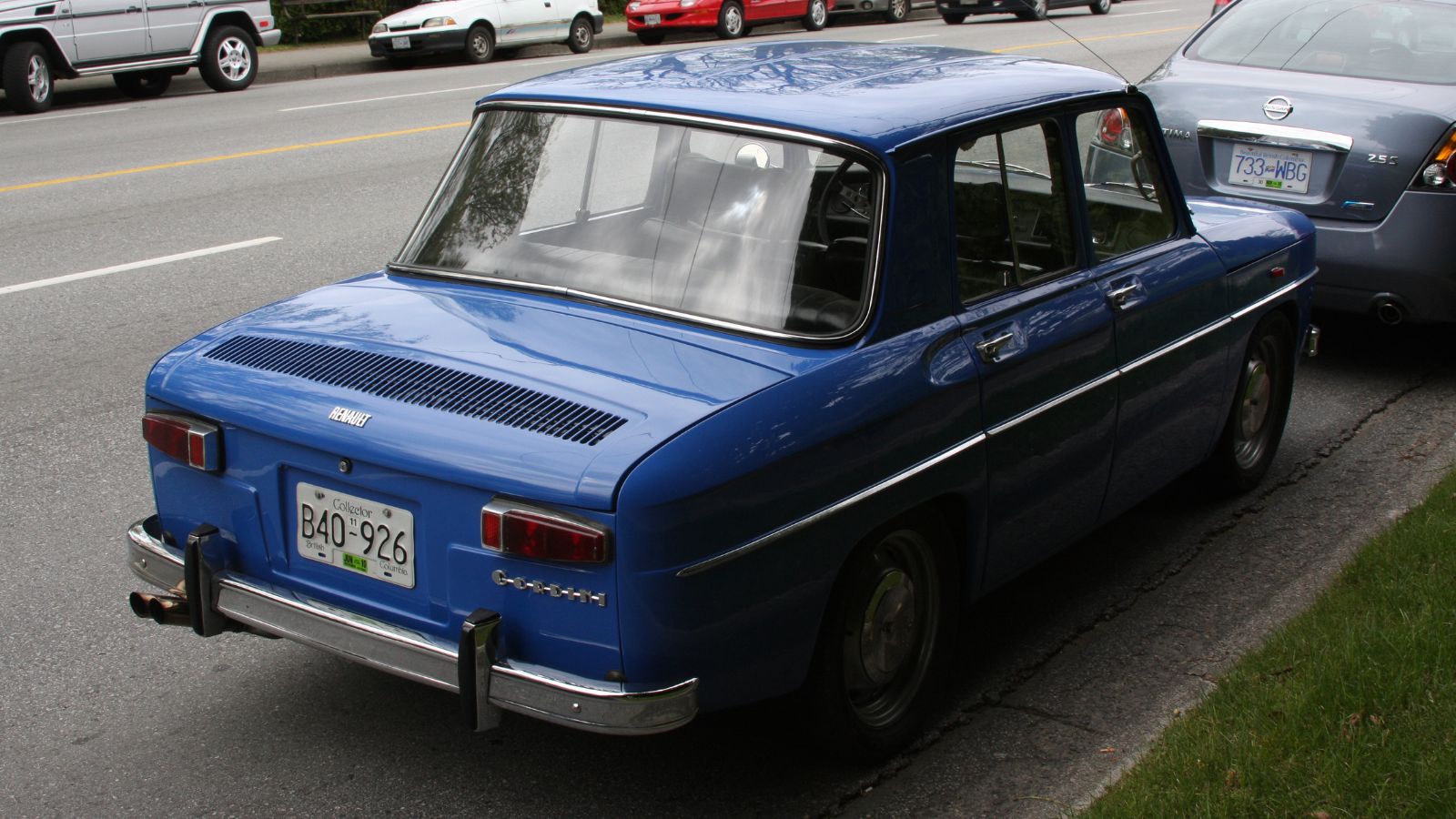
The Renault R8 was a compact sedan from the 1960s with a rear mounted four cylinder. Its sporty variant, the R8 Gordini, dominated rally racing and became a legend in France. The Gordini proved that small, rear engine sedans could punch far above their weight in motorsport.
Hillman Imp
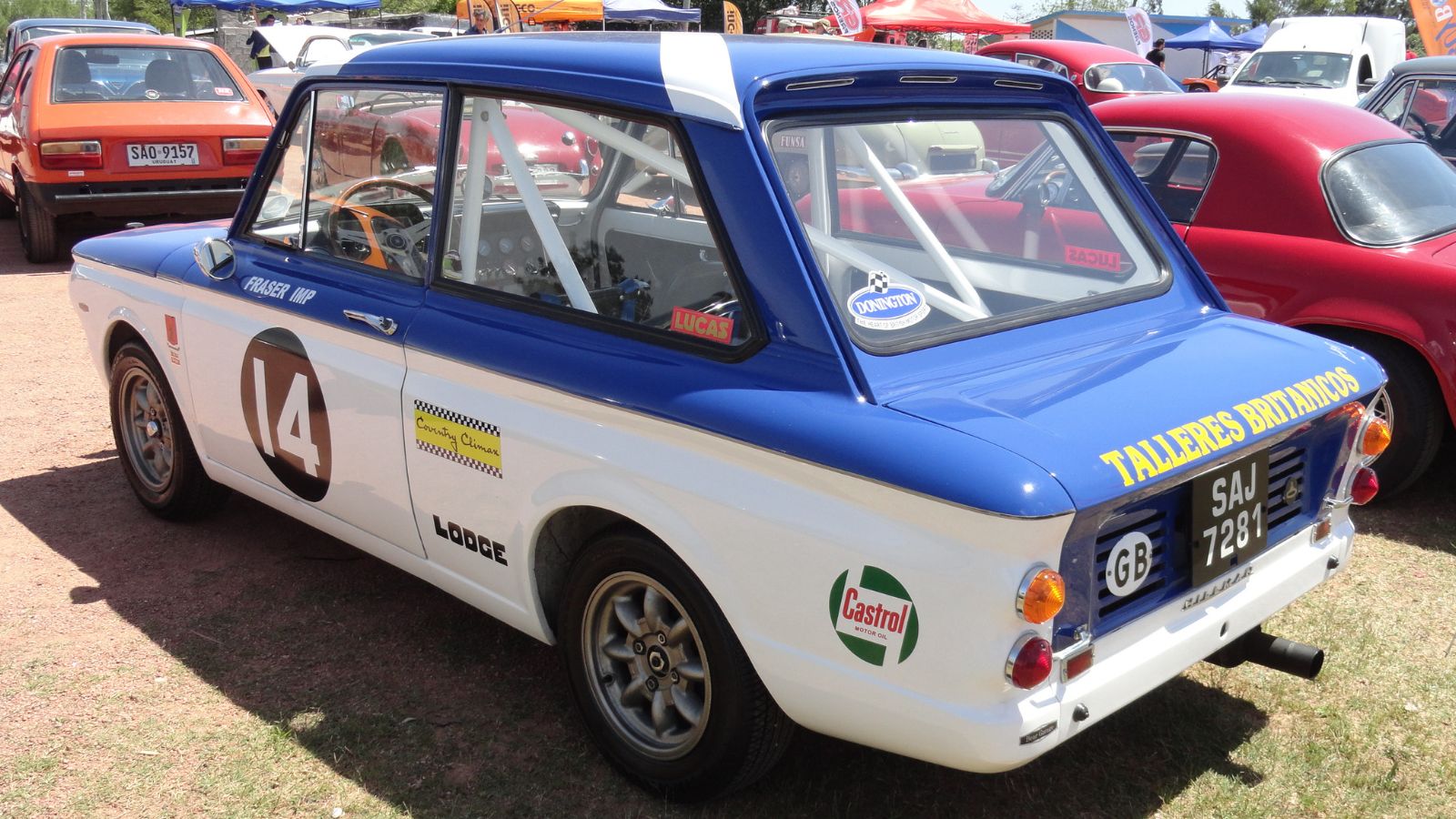
The Hillman Imp was Britain’s take on a rear engine economy car. With an aluminum engine mounted at the back, it was advanced for its time. While it struggled to compete with the Mini, it found a niche following. Today it is remembered as one of the more unusual British classics.
Porsche 959
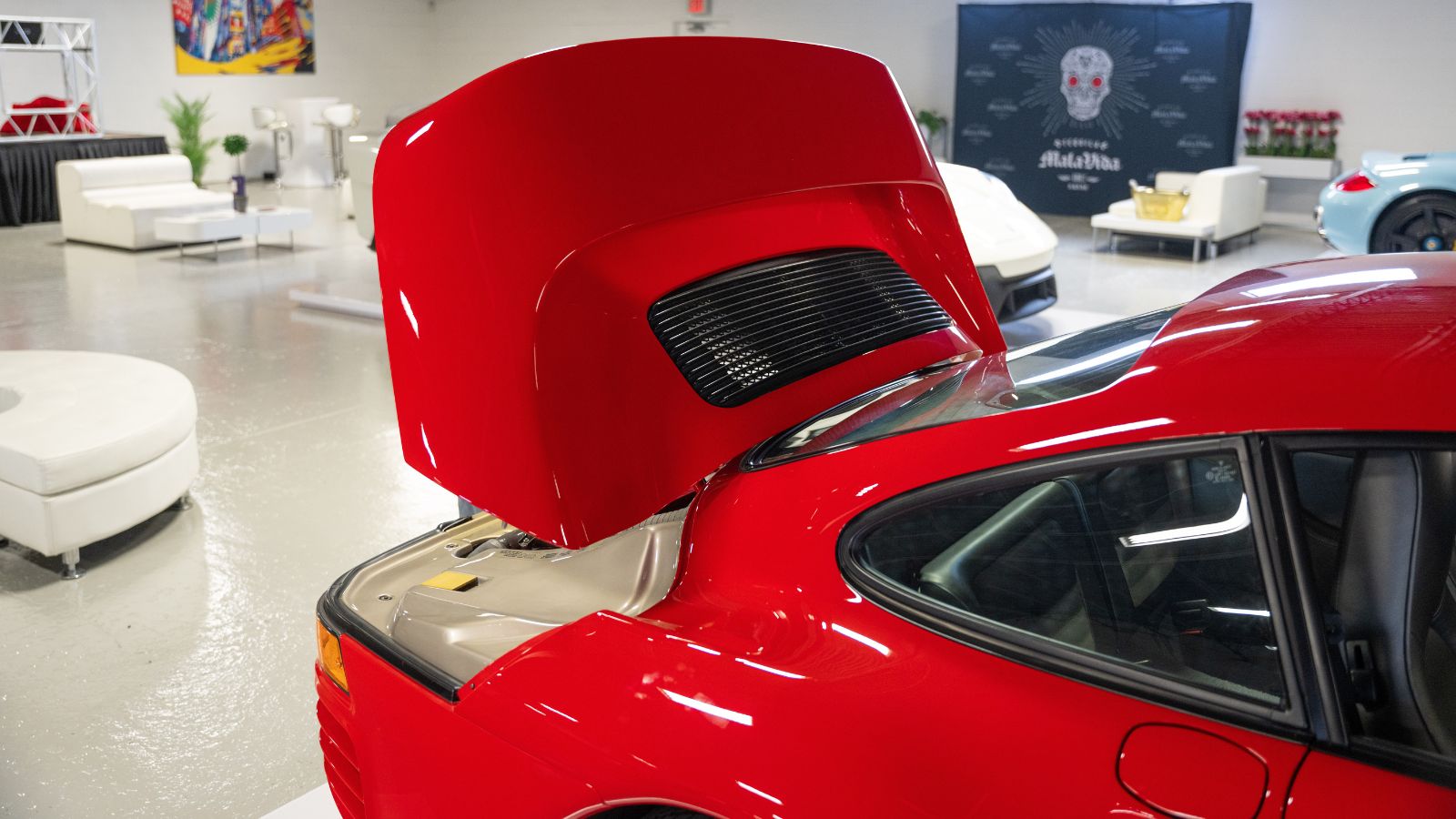
The Porsche 959 was a technological masterpiece of the 1980s. Its twin turbocharged flat six sat at the rear, and it was packed with all wheel drive and advanced electronics. With a top speed over 190 mph, it was one of the fastest cars of its era. It remains one of Porsche’s most iconic halo cars.
Fiat 126
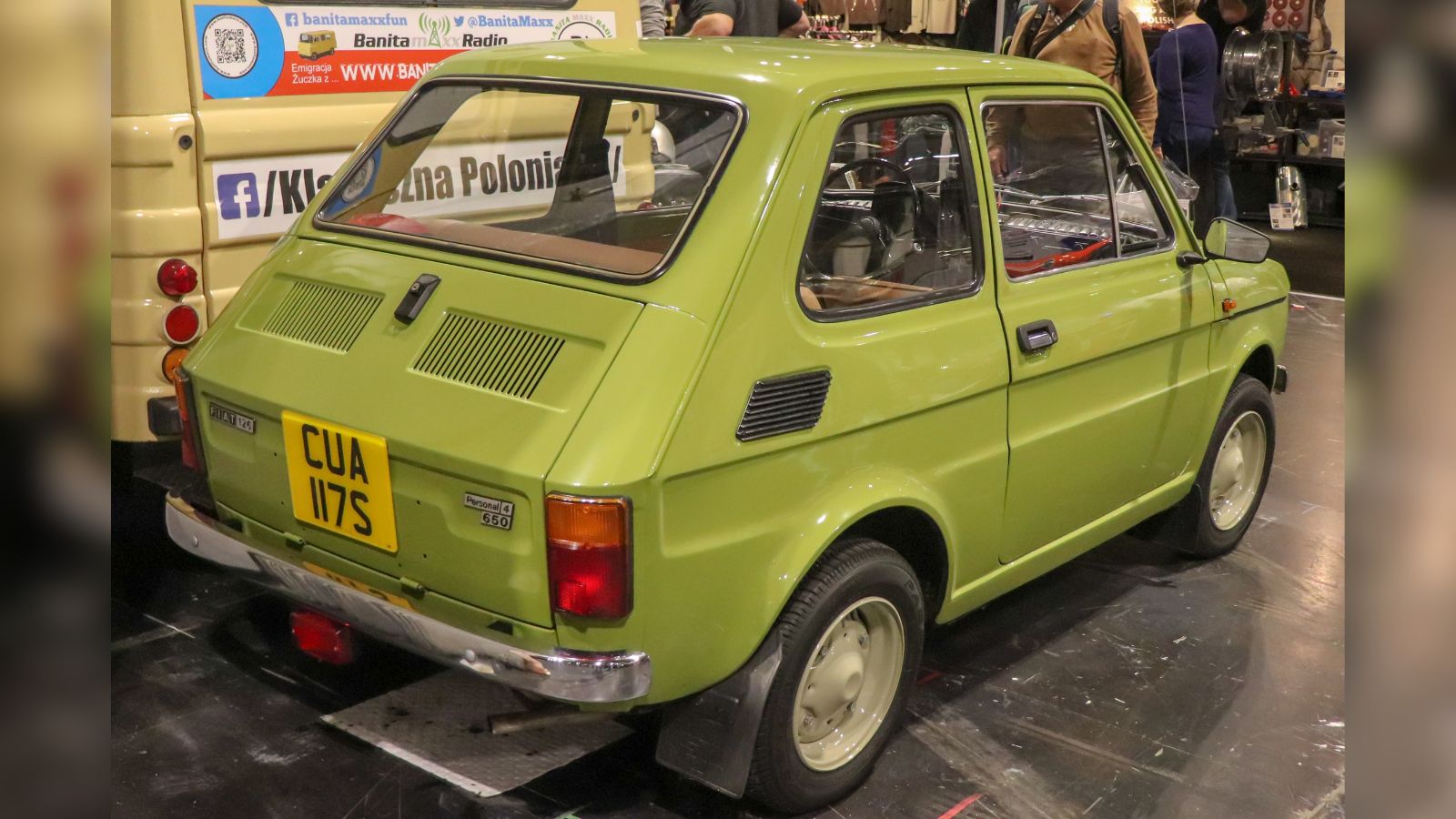
The Fiat 126 replaced the 500 in the 1970s and continued the tradition of small rear engine cars. It became especially popular in Eastern Europe, where it was produced under license in Poland. Cheap and practical, it was basic transportation for millions of families.
NSU Prinz
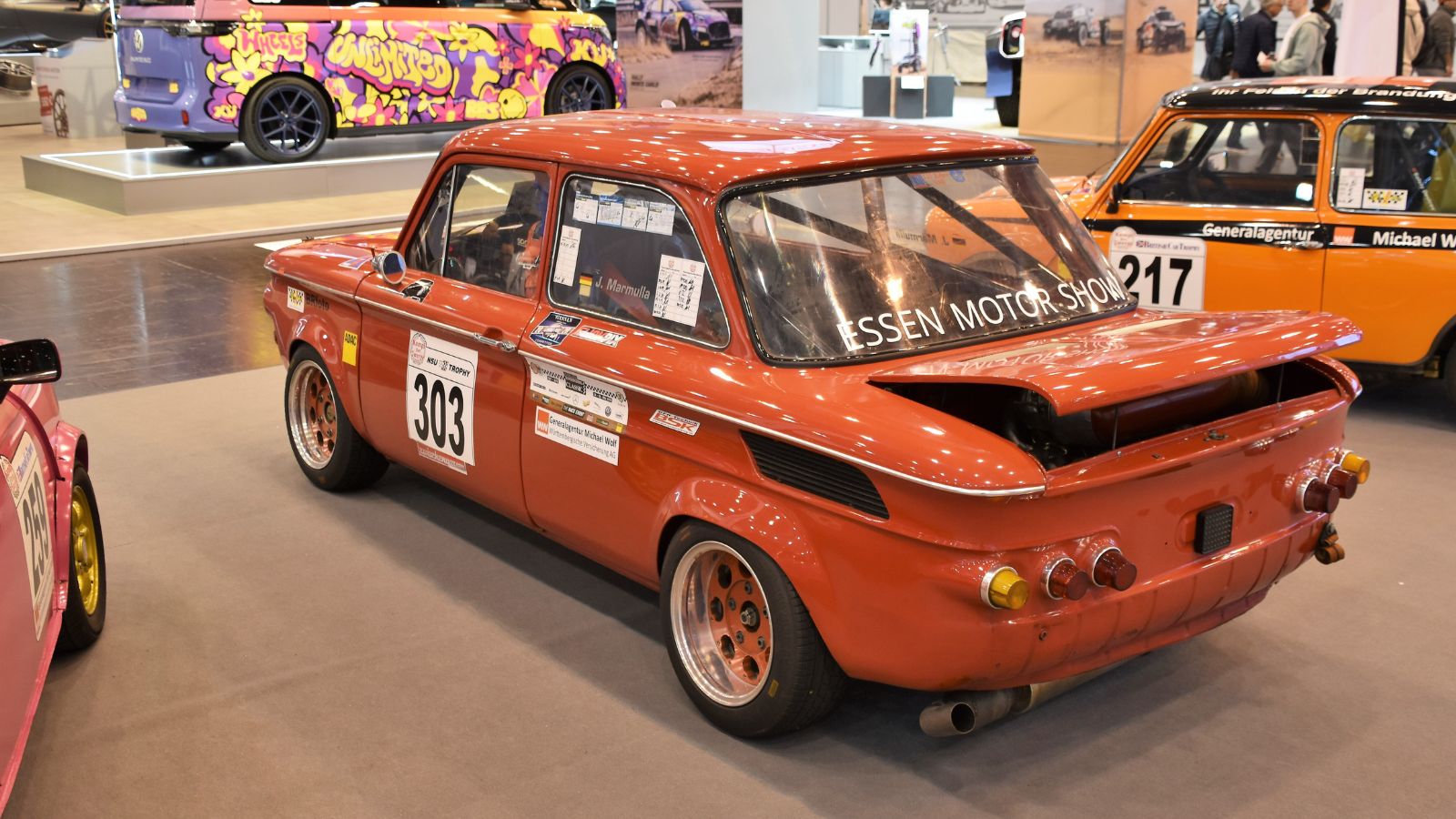
NSU’s Prinz line of small cars in the 1960s featured rear mounted engines and quirky styling. While not fast, they were efficient and innovative. NSU later developed advanced rotary engines, but the Prinz remains an early example of clever German engineering.
Volkswagen Type 2 (Microbus)
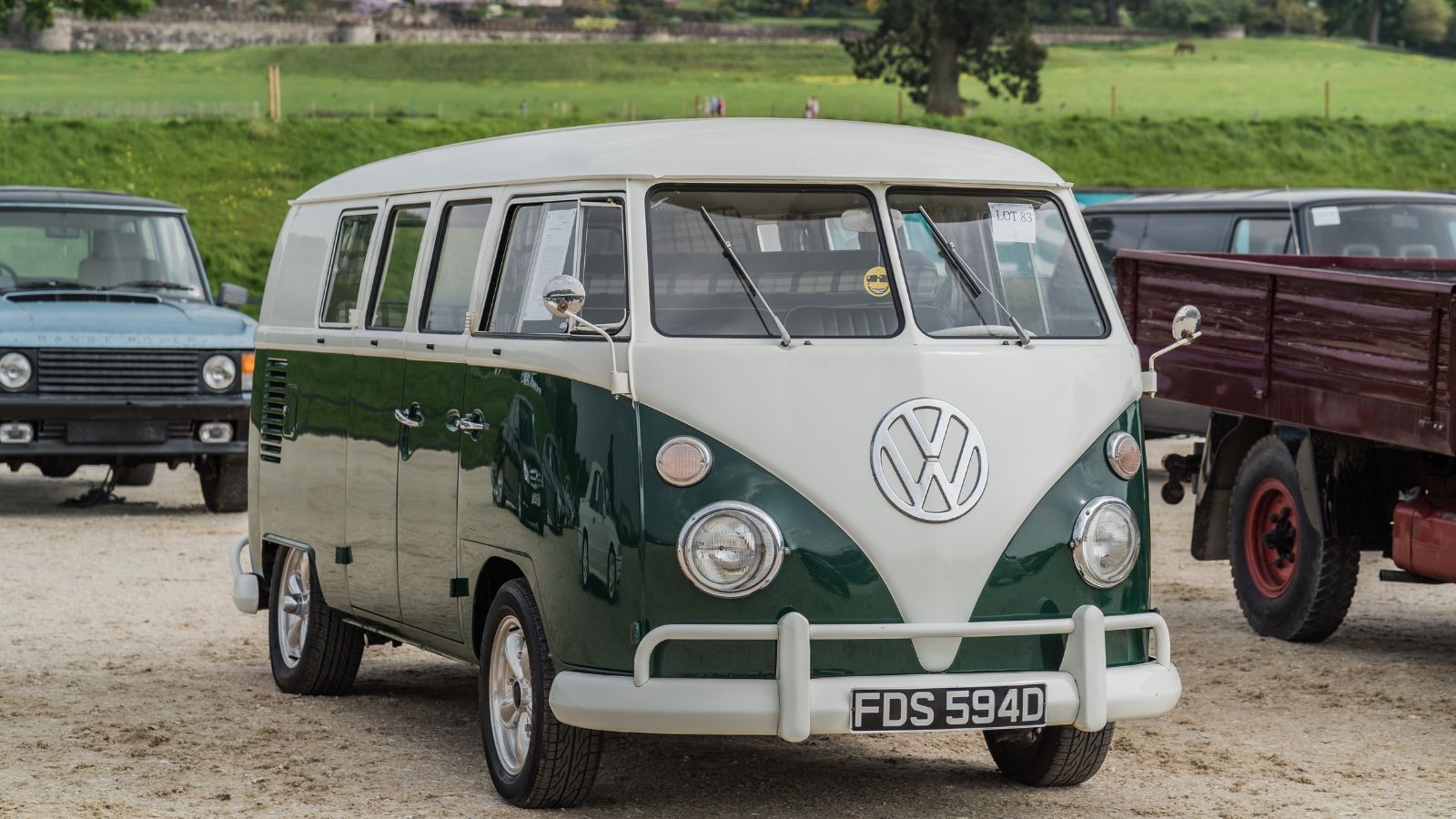
The VW Bus carried its flat four in the back, just like the Beetle. Its rear engine layout allowed for a flat floor and huge interior space. Beloved by campers, surfers, and hippies, it became a symbol of freedom and counterculture. Few vehicles carry such strong cultural weight.
Porsche 914
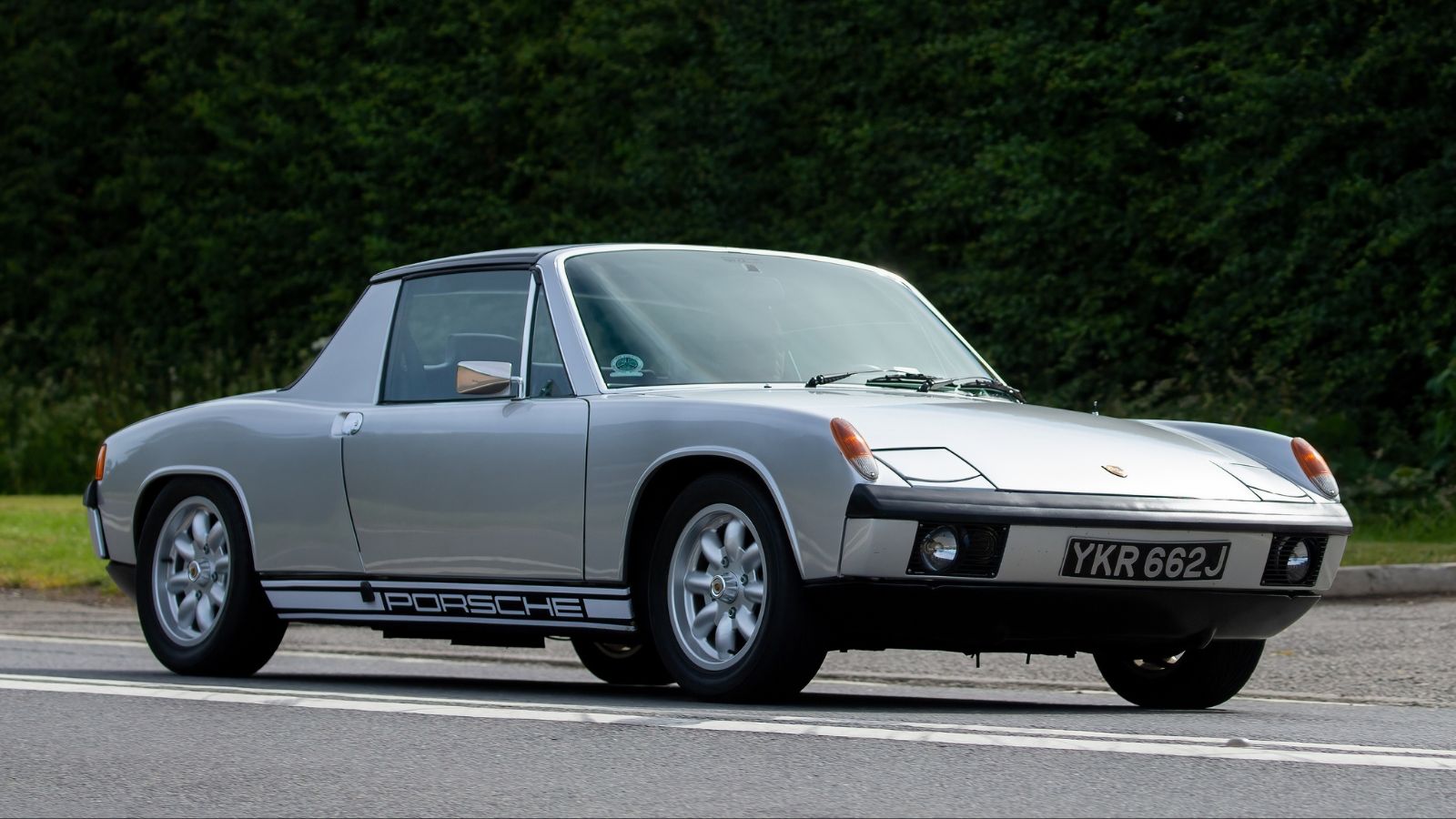
Developed in partnership with Volkswagen, the Porsche 914 placed a flat four or flat six behind the driver. While technically mid engine by some definitions, it carried its spirit from the 911. Affordable and fun, it has become a cult classic among Porsche fans.
Subaru 360
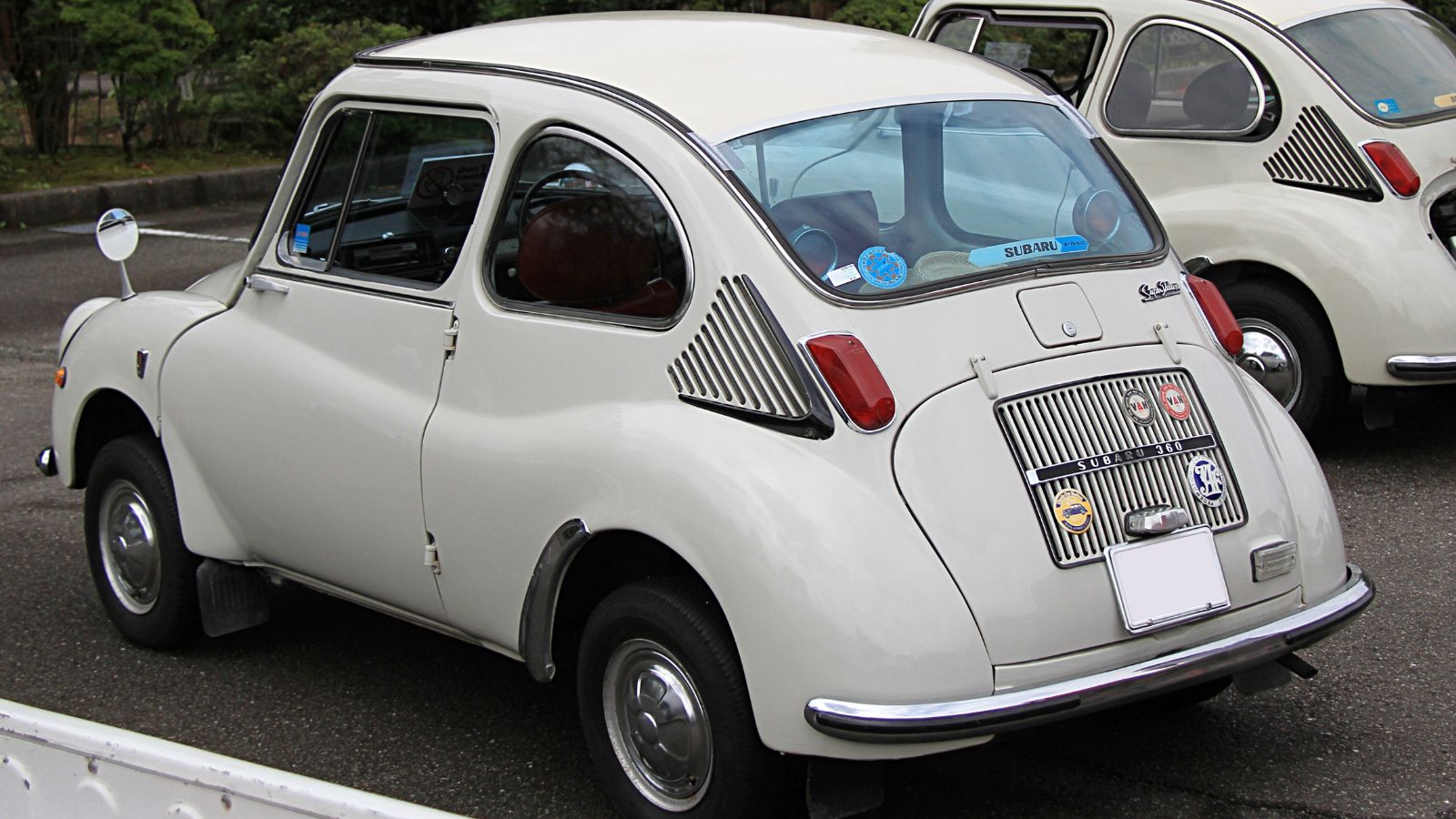
Nicknamed the Ladybug, the Subaru 360 was Japan’s first mass produced car. With a tiny two stroke rear engine, it was light, cheap, and gave Japanese families affordable mobility. It set Subaru on the path to becoming a global automaker.
ZAZ 965
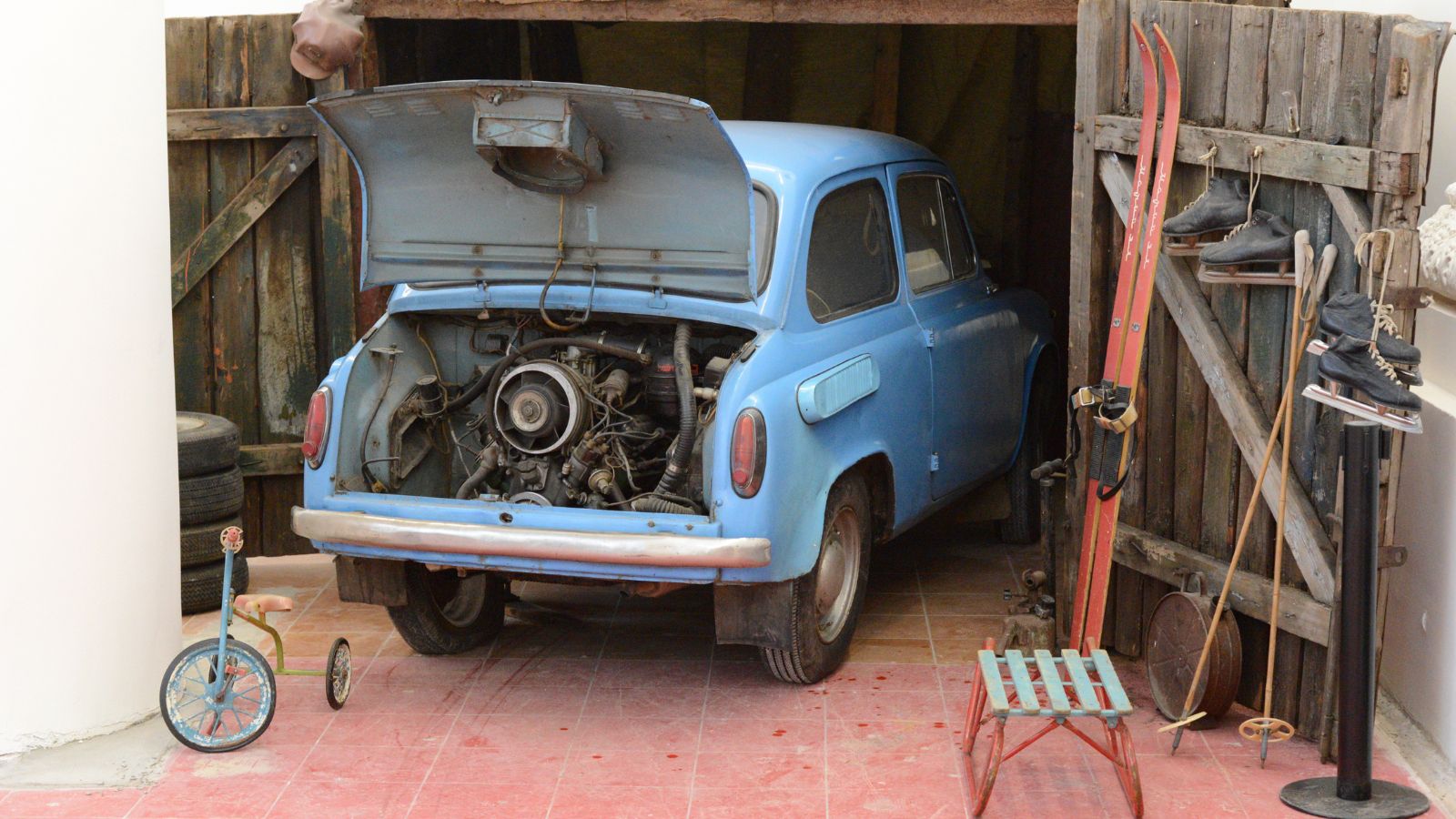
The Soviet built ZAZ 965 was inspired by the Fiat 600. With its rear mounted air cooled engine, it offered basic transportation across Eastern Europe. While crude by Western standards, it became a symbol of affordable motoring in the USSR.
Alpine A110 (Classic)
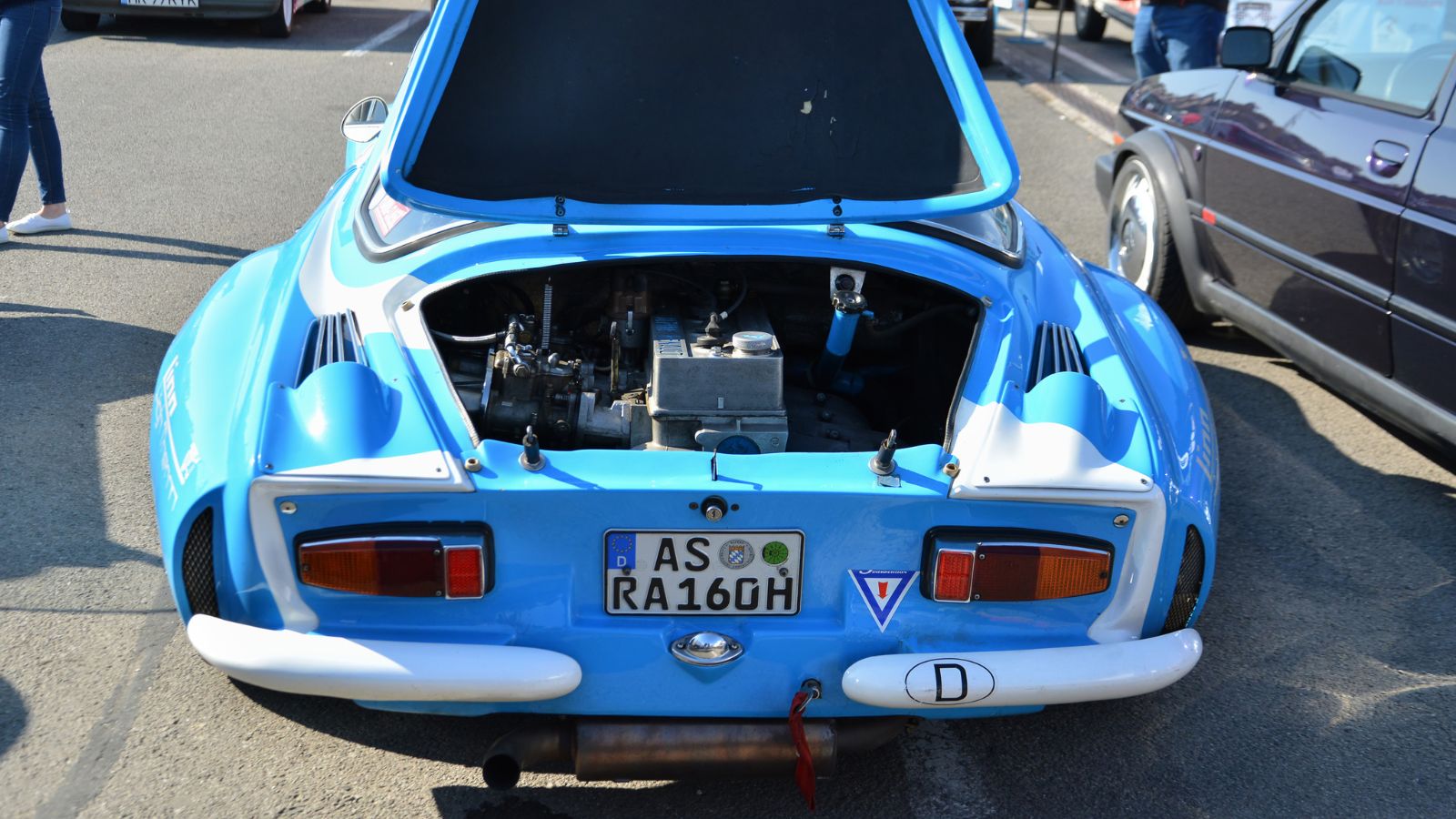
The Alpine A110 was France’s rally hero of the 1960s and 1970s. With its lightweight fiberglass body and rear mounted four cylinder, it handled mountain roads with ease. It won the first World Rally Championship in 1973, cementing its place as one of the most iconic rear engine sports cars ever.
25 Facts About Car Loans That Most Drivers Don’t Realize

Car loans are one of the most common ways people fund car purchases. Like any other kind of loan, car loans can have certain features that can be regarded as an advantage or a disadvantage to the borrower. Understanding all essential facts about car loans and how they work to ensure that you get the best deal for your financial situation is essential. Here are 25 shocking facts about car loans that most drivers don’t realize:
25 Facts About Car Loans That Most Drivers Don’t Realize
